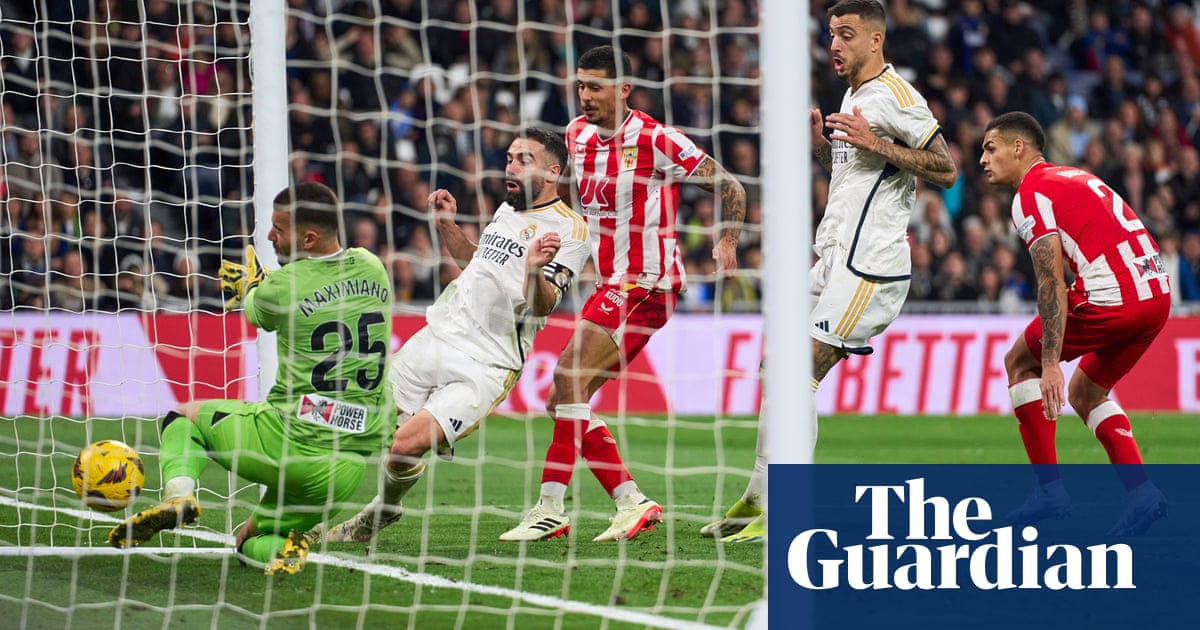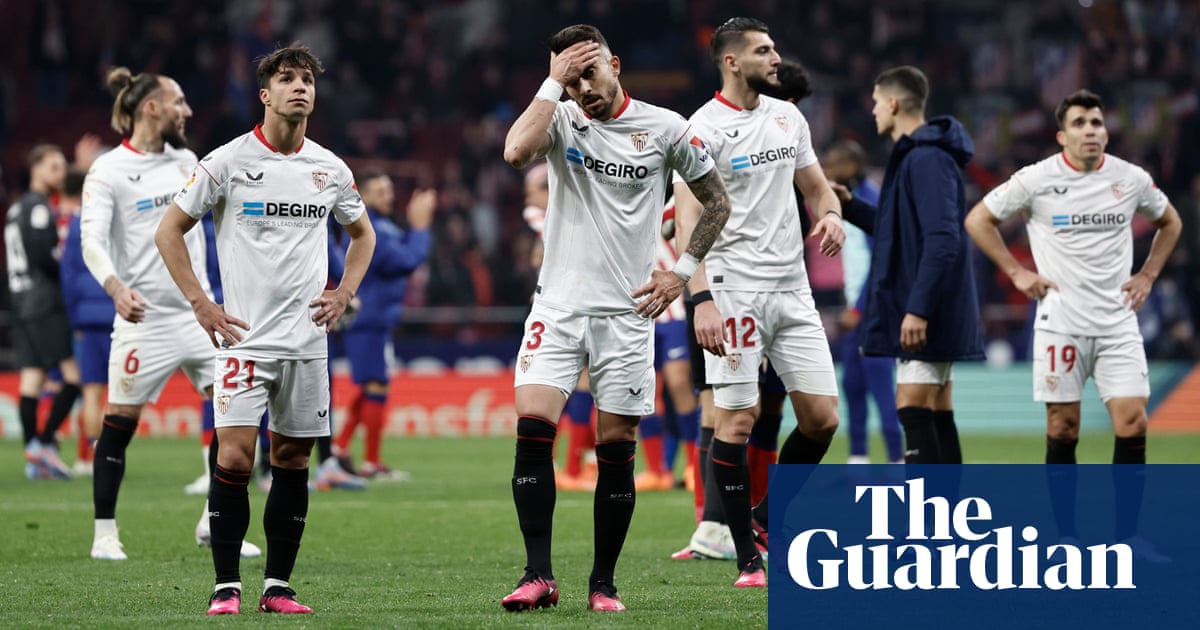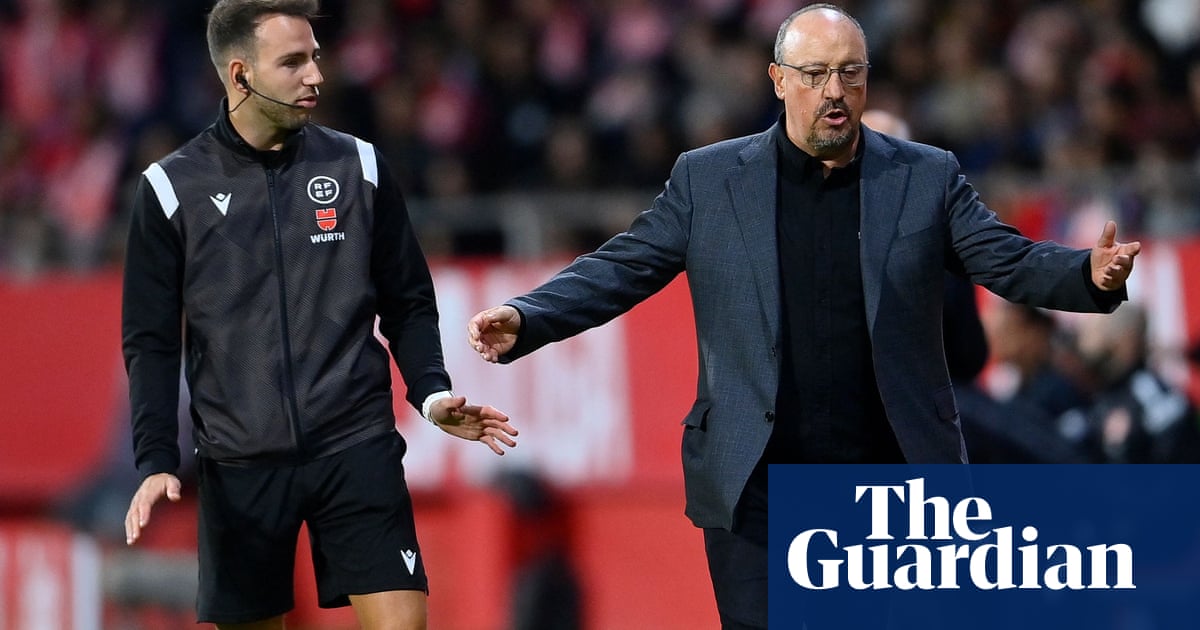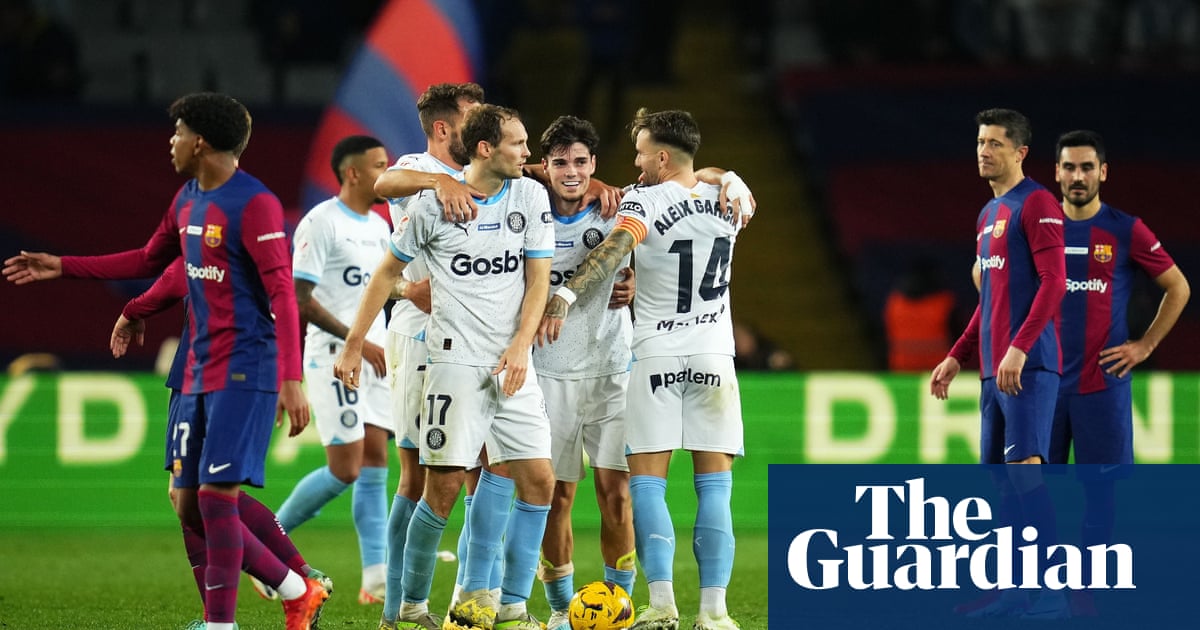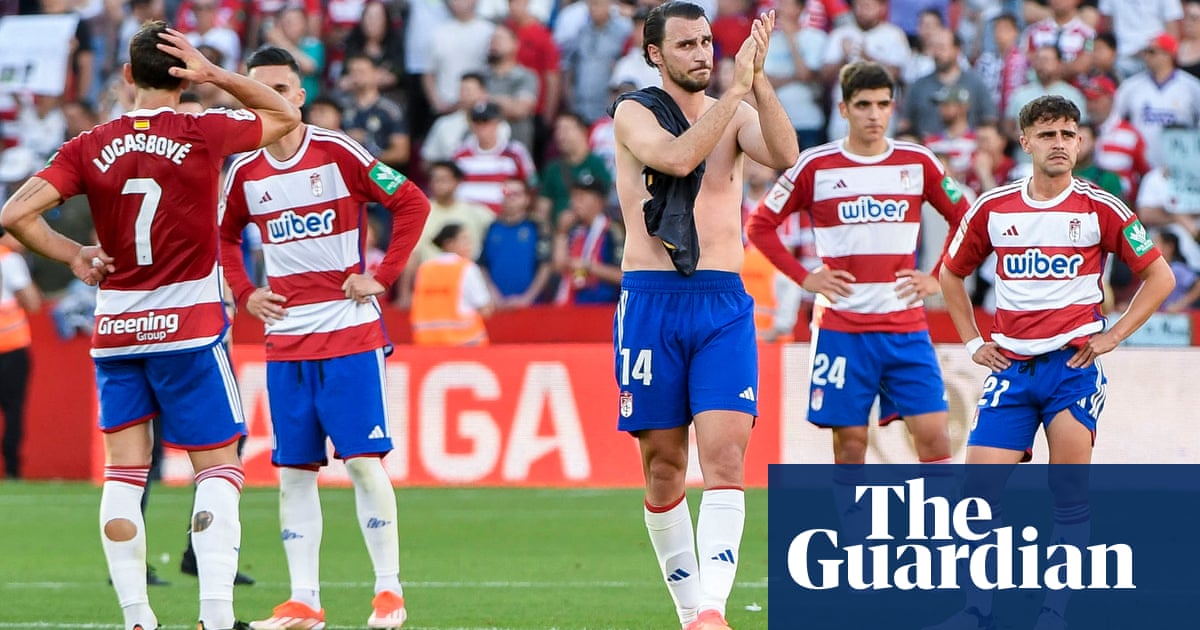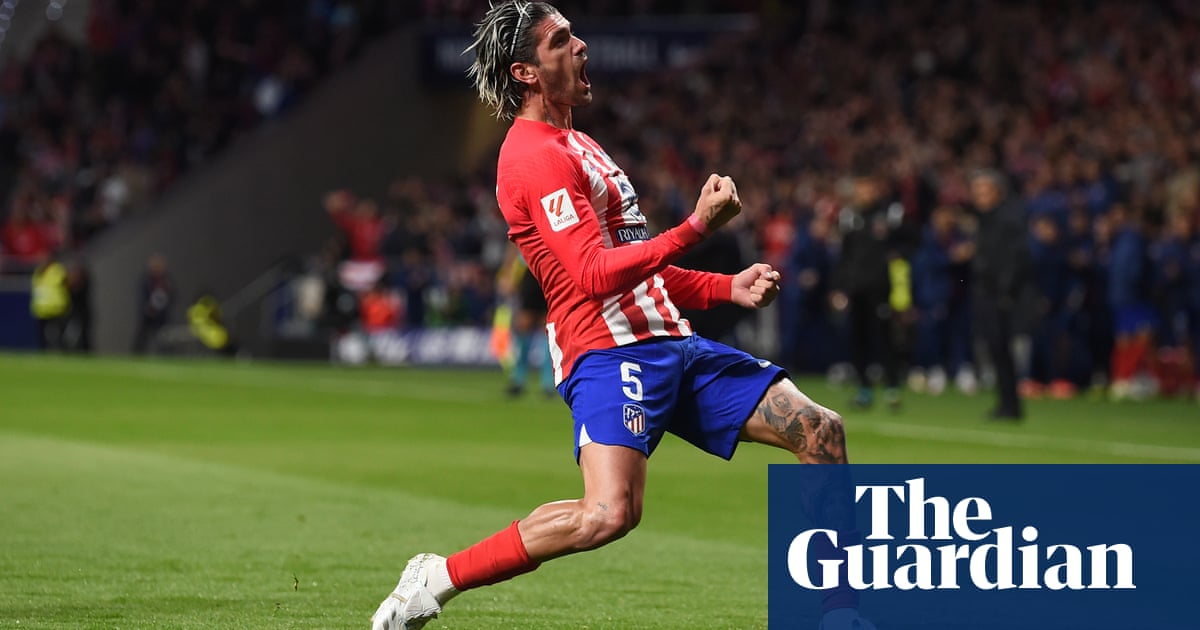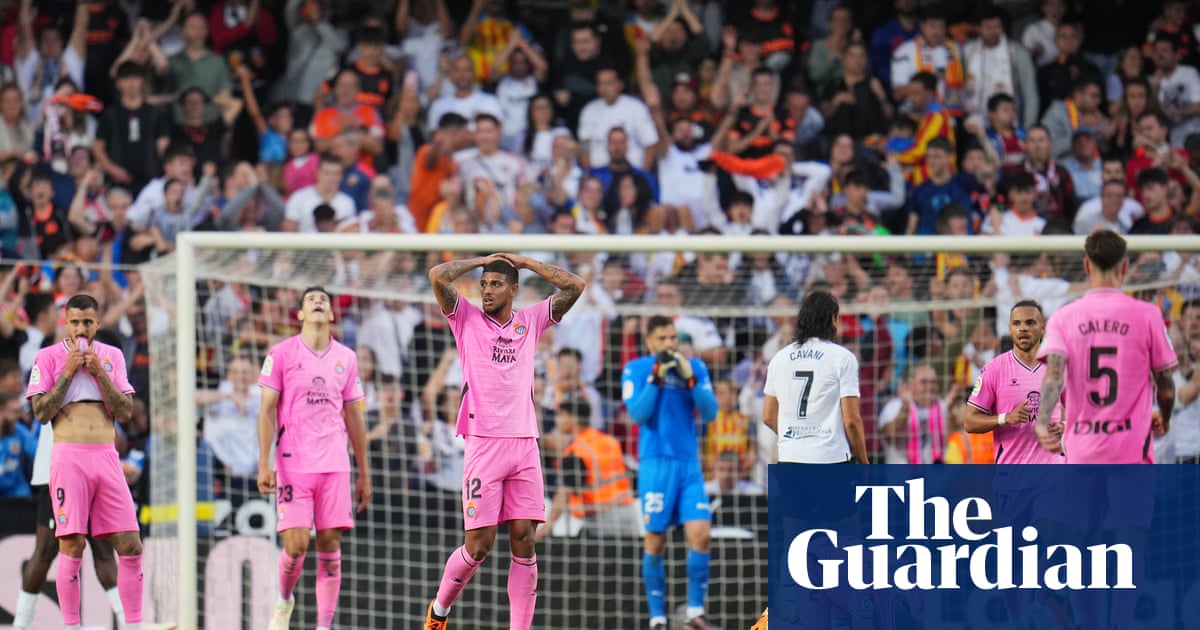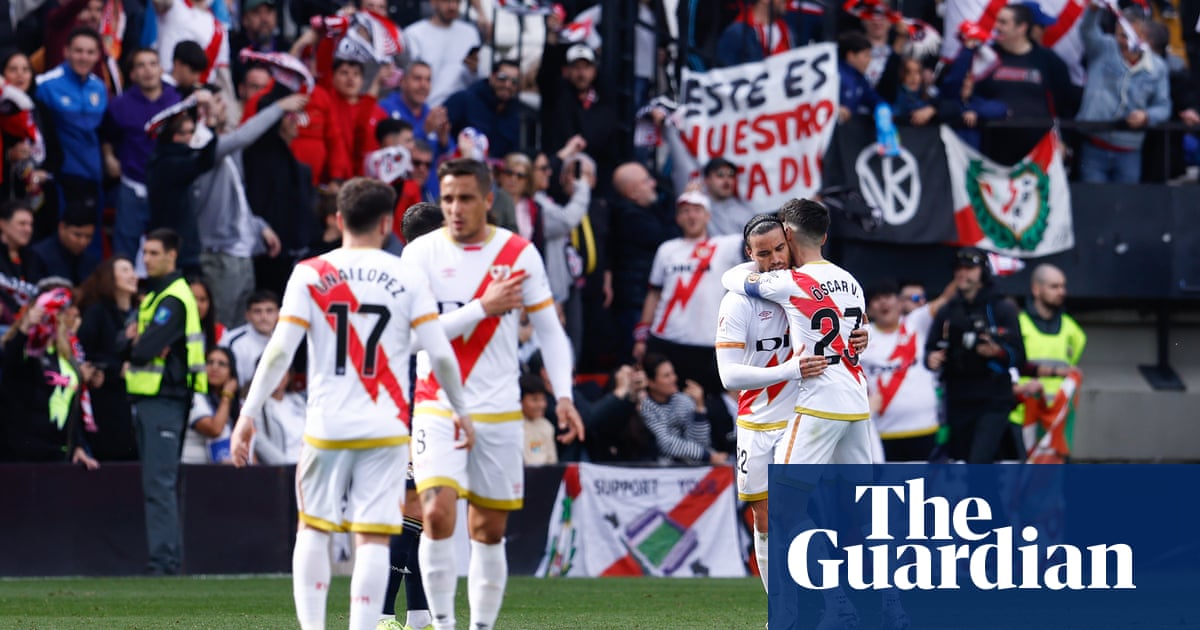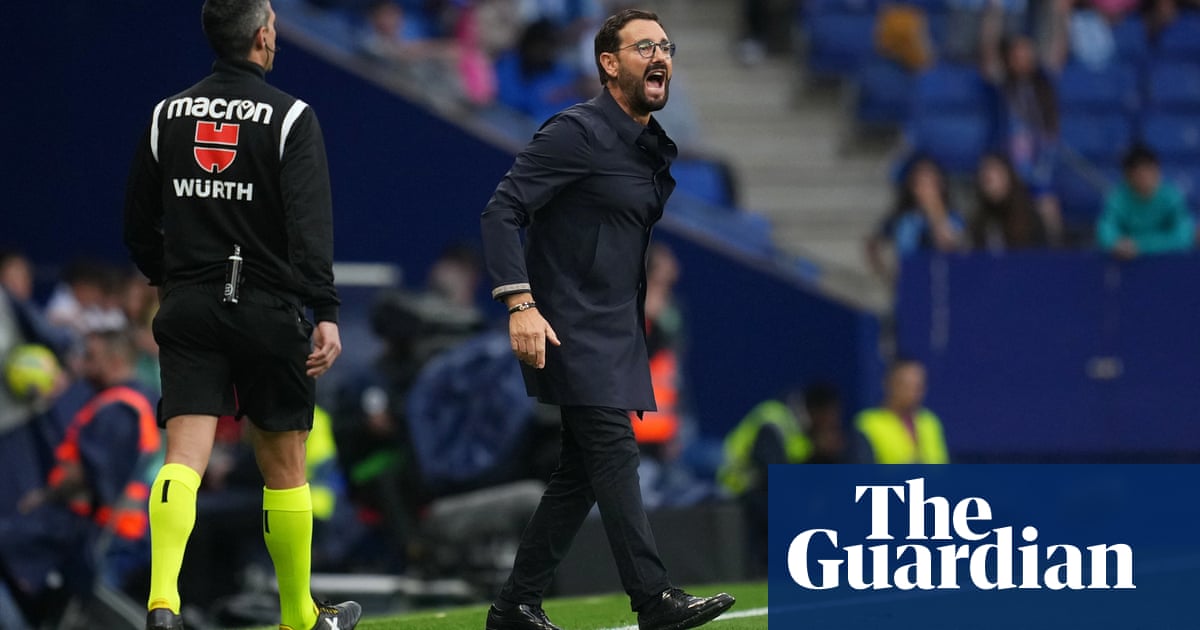
“Icouldn’t sit at home with my arms crossed,” José Bordalás said, and so there he was standing in the pouring rain, soaked and angry again, glasses no good to him now. Sunday afternoon and the coach who took Getafe to primera in the first place had returned on a rescue mission to keep them there, swapping his sofa for the sideline. Where, officially just 27 hours into the job, he watched drenched as his team – well, it is now – lost 1-0 to Espanyol, their third consecutive defeat and a sixth game without winning dropping them deeper into the relegation zone. Which wasn’t the way he wanted it but was exactly why he was there, back for another battle.
And, boy, is it a battle: possibly the best La Liga has seen at the bottom, although that might not be the word they would use. It wasn’t supposed to be this way, at least not for Getafe. Survival last season, inspired by Crystal Palace, was a miracle considering how it started but was secured early, they strengthened in the summer and although they began badly, three home wins running across February and March – against Valencia, Girona and Sevilla – had lifted them five places and three points above relegation. The problem was that just two points from the next 15 followed and, while those were secured in Bilbao and against Barcelona, desperation and fear crept back in as they were pulled back into the Sarlaac pit.
When Getafe were beaten by 3-1 by Mallorca a week ago, coach Quique Sánchez Flores said his team had faced a choice between “good or shit … and we chose shit”. Three days later when they were beaten by Almería – Almería’s first away win all season – goalkeeper David Soria insisted that they lacked the “balls”, “blood” and “mentality” needed to fight against their fate: “This is the food on our families’ plates at stake and it seems like some people aren’t that bothered,” he complained. The players, he warned, were “overwhelmed” by it all, “the smallest detail doing so much damage”. He battle cry ended: “Either we grab on to this or we’re going down.”
Something had to be done, so Getafe did what most teams do. (Except Almería and Cádiz, the two struggling teams, perhaps not entirely coincidentally, best placed to survive). Like Celta and Sevilla, who are out of trouble now, and Valladolid, Elche, Espanyol and Valencia who certainly aren’t, they sacked their manager. Sánchez Flores departed the following day, lamenting that the love he gave was not reciprocated but all they wanted now was rescuing. Getafe were one of six teams in the relegation battle, and they could think of no one quite like Bordalás to pull them out: the coach who took them from the second division to Europe, and for whom, winger Portu said, “football is a fight”.
Only Bordalás was not so sure. Initially, he turned them down, leaving sporting director, Ruben Reyes, lined up as coach. On Friday evening though, his car rolled into the Coliseum where fans gathered to plead for his second coming. Together they sang a familiar song, revived from better times: Bordalás, I love you! Flares lighting the way, they gave him a flaming guard of honour when he rolled out again, deal done, at 1am.
“As Joaquín Caparrós once said, you go from whore to nun in 24 hours,” Getafe’s relieved president, Ángel Torres, said the next morning. “It’s black and then a day later it’s white. And it wasn’t a negotiation, it was a ‘listen, I’ll be there tomorrow in my tracksuit’.” The fans were there too, let into the Coliseum with blue smoke canisters and renewed hope. “I couldn’t stay at home when my president and friend needed me, when the club did,” Bordalás insisted. “What matters is that I am here now.”
He had got there just in time for another huge weekend. Elche beat Rayo 4-0 to avoid mathematical relegation for another few days and reach 16 points thus guaranteeing that they won’t be the worst team in history, but they’re gone really. Fifteenth-placed Almería lost 4-2 at Real Madrid, a fight they knew wasn’t theirs and which fell between Getafe and Elche games. And 14th placed Valladolid played Atlético on Sunday night – a game in which they would come back from 3-0 to hit the crossbar and be denied a penalty at 3-2 but eventually lost 5-2. All of which meant that survival Sunday started with only five points between 19th and 15th, seven separating six teams. Getafe in 18th went to Espanyol in 19th, Cádiz in 17th faced 16th-placed Valencia – who had escaped the relegation zone three days earlier with a stoppage-time belter from a 19-year-old who had been on the pitch three minutes and was taking the first shot of his career.
So many teams are involved, so close has it become, the threshold for survival currently four points higher than at this stage last season and likely to end up over 40, that every tiny thing takes on huge significance, the tension unbearable. Every week there is a huge match, a direct clash due to end it all, at least one for each of the last eight weeks: Espanyol-Cádiz in week 30, Valencia-Sevilla in week 29, Almería-Valencia in week 28; Cádiz-Sevilla, week 27; Almería-Cádiz and Getafe-Sevilla, week 26. Cádiz-Getafe and Sevilla-Almería, week 25; Valladolid-Espanyol in week 24. And now this, the biggest of them all.
This was going to decisive, except that every week is going to be decisive and the only thing decided is that everyone has to do it all over again. In that time, only Sevilla, with four wins and a draw in the five since José Luis Mendilibar took over, have succeeded in pulling away, and no one has been cut adrift. And so it was again this Sunday, which doesn’t make it easier or less dramatic, quite the opposite: it means always being on the edge. It’s better that way; the men dreaming of closed competitions may not like it, and those living through it don’t enjoy it much, but jeopardy is needed. Dangerously is the way to live, every emotion amplified. Fear is fun, at least for the rest of us. Nothing is more human than this and nothing matches the scenes this week, except maybe the scenes next week and every week until the end.
And so it went, another round of games with just the right combination of results to tighten it up even further, everyone clinging on. Look at the table this morning and two teams have to go down from Cádiz (35), Valladolid (35), Almería (33), Valencia (33), Espanyol (31) and Getafe (31), all within four points of each other.
At the Nueva Mirandilla, which had gone all Bombonera, yellow and blue ticker-tape everywhere, songs sung, volume stuck on full blast, and desperation clinging to every kick, every challenge cheered, Cádiz went 2-0 up against Valencia. A superb throw-in set piece gave them the lead, Gonzalo Escalante heading in, before an even better backheel from Chris Ramos and assist from Pacho Espino, finished off by Sergi Guardiola, looked to have ended it. But then a dreadful mistake from Conan Ledesma and an outrageously good finish from Samuel Lino put Valencia back in it and set up a wild ending in which the keeper more than made up for that error and the home side held on somehow, every player in pieces at the end.
“If we don’t fix this, we’re going to shit,” Valencia striker Hugo Duro said. “I’ve seen a lot in football, but I don’t think I’ve seen a team run like that before,” said Cádiz coach Sergio, who has a fantastic everyman quality about him and celebrated the final whistle by bouncing his assistant across the pitch with his belly. “We scored the second and it seemed Valencia were, well, I’m not going to say dead but they were fearful and then they scored and what followed was, pfff, heroic. It all happened out there. The effort was brutal. It’s worth it, but you have such a bad time. Oh, and I almost forgot: I told my son I’d dedicate him the win, if we won, so: happy birthday!”
It is now. A couple of hours later at Cornella, sold out for the first time, Espanyol got their first win in nine. If the goal came via a penalty, awarded by VAR for a handball, it was deserved; it was also needed, desperately. Defeat would have left them second bottom four points from safety, almost gone; instead they are a single place and game from getting out of there. Tears were flowing at full time. “We can do it, of course we can. No one should give us up for dead,” Nico Melamed said. “This wasn’t a step forward, it was two,” coach Luis García insisted, having got his first win.
For Getafe, it was another step back. Asked what was going through his mind, Soria said: “Nothing good.” But that’s what Bordalás came for, first battle lost in the deluge but a war still to waged. “This doesn’t change anything,” he said. “I knew the situation the club is in: in relegation and wounded. But if someone who treated me well needs my help, I’m there.”




